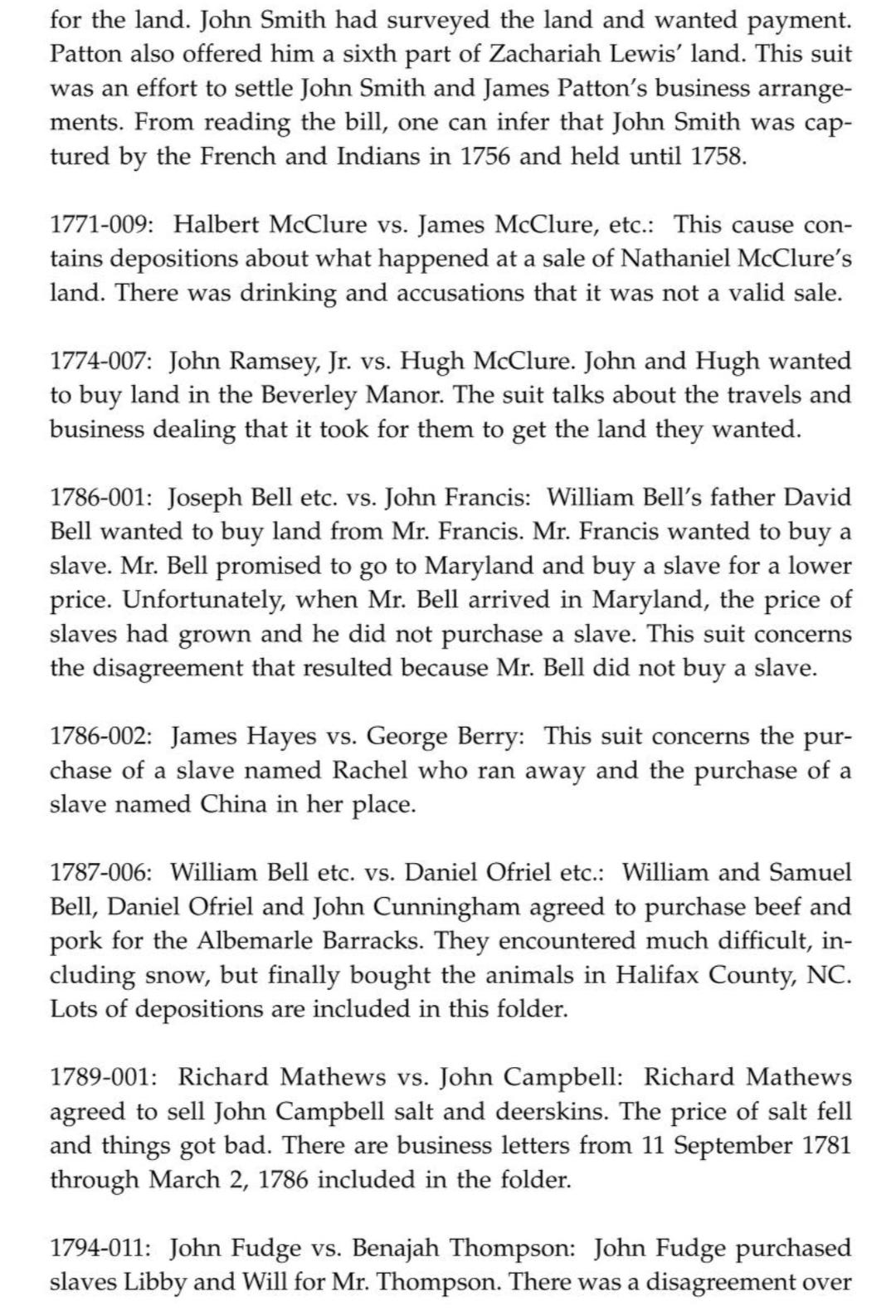“Chancery” is a word we don’t hear very often, so the meaning may be rather vague. We do know it has something to do with the court system. If you’ll take a good look at the definitions and examples provided by Merriam-Webster, you’ll see that “equity” is an important aspect of chancery proceedings. To understand it, you might need to think about “justice” in a way that differs somewhat from the way it’s currently used in American conversation.
I came across a detailed article about chancery cases in Augusta County going back to the 1700s and recognized some surnames. I thought you might find the cases instructive, even if they don’t involve any of your ancestors.
I made an alphabetized list of the surnames mentioned in cases prior to 1809, but numerous cases from later years are also summarized in this article. You’ll gain a better understanding of issues and norms from that era if you spend even a few minutes looking at some of the cases described.
Here are the surnames I found in cases prior to 1809: Akerling, Allison, Baret, Barnett, Bayley (Bailey), Bell, Berry, Bible, Black, Borden, Bowyer, Boydstone, Bruce, Bryan, Burton, Burwell, Campbell, Carpenter, Christian, Conrad, Craigen, Craighill, Crane, Crawford, Crockett, Crockwell, Culbertson, Davenport, Davison, Divisure, Dorman, Doyell, Fackler, Foster, Francis, Fudge, Gold, Green, Greenlee, Grigg, Hayes, Heiskell, Helm, Herring, Houston, Johnson, Keller, Kelzo, Kennedy, Laird, Littlepage, Mathews, McChesney, McClure, McCroy, McGahay, McMeechen, Metcalf, Miller, Mitchell, Moore, Nelson, Ofriel, Parks, Patton, Payne, Pendleton, Ramsey, Robinson, Rumsey, Russell, Schwartz, Seely, Sheppard, Smiley, Smith, Stuart, Steele, Stover, Thompson, Thorn, Walton, West, White, Woodcock, Zinn.
(Also see: “Augusta Co. Chancery Reveals Pioneer Stories of Western Virginia”)
Source: Augusta Historical Bulletin Vo. 47 (2011), by Augusta Historical Society. Used in accordance with Creative Commons Copyright.














